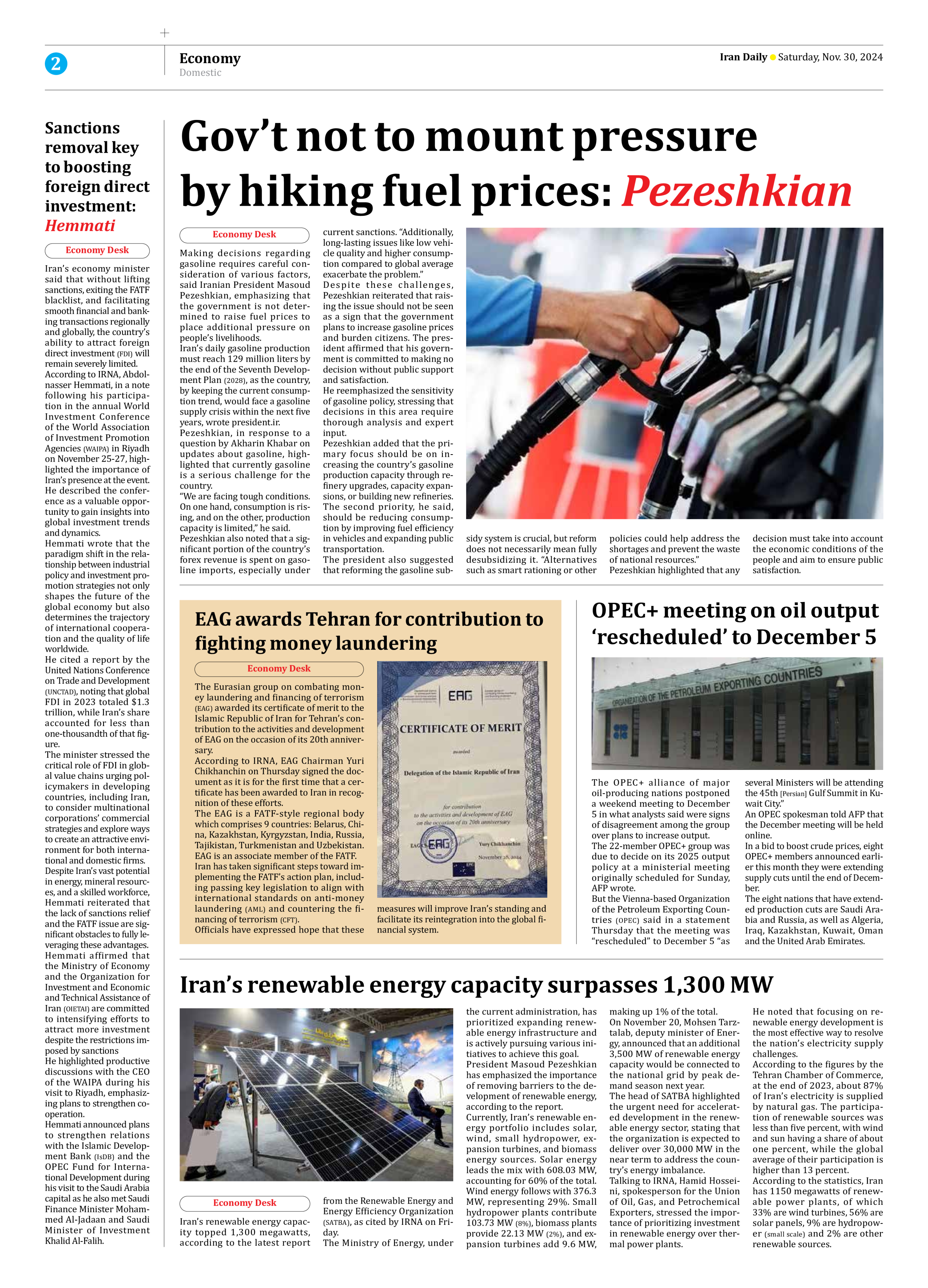
Gov’t not to mount pressure by hiking fuel prices: Pezeshkian
Making decisions regarding gasoline requires careful consideration of various factors, said Iranian President Masoud Pezeshkian, emphasizing that the government is not determined to raise fuel prices to place additional pressure on people’s livelihoods.
Iran’s daily gasoline production must reach 129 million liters by the end of the Seventh Development Plan (2028), as the country, by keeping the current consumption trend, would face a gasoline supply crisis within the next five years, wrote president.ir.
Pezeshkian, in response to a question by Akharin Khabar on updates about gasoline, highlighted that currently gasoline is a serious challenge for the country.
“We are facing tough conditions. On one hand, consumption is rising, and on the other, production capacity is limited,” he said.
Pezeshkian also noted that a significant portion of the country’s forex revenue is spent on gasoline imports, especially under current sanctions. “Additionally, long-lasting issues like low vehicle quality and higher consumption compared to global average exacerbate the problem.”
Despite these challenges, Pezeshkian reiterated that raising the issue should not be seen as a sign that the government plans to increase gasoline prices and burden citizens. The president affirmed that his government is committed to making no decision without public support and satisfaction.
He reemphasized the sensitivity of gasoline policy, stressing that decisions in this area require thorough analysis and expert input.
Pezeshkian added that the primary focus should be on increasing the country’s gasoline production capacity through refinery upgrades, capacity expansions, or building new refineries.
The second priority, he said, should be reducing consumption by improving fuel efficiency in vehicles and expanding public transportation.
The president also suggested that reforming the gasoline subsidy system is crucial, but reform does not necessarily mean fully desubsidizing it. “Alternatives such as smart rationing or other policies could help address the shortages and prevent the waste of national resources.”
Pezeshkian highlighted that any decision must take into account the economic conditions of the people and aim to ensure public satisfaction.







